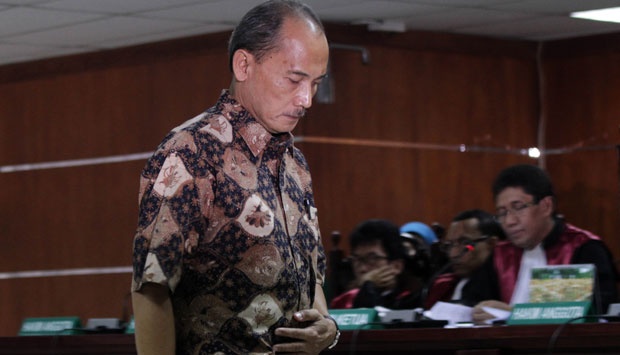
TEMPO.CO, Jakarta - We must continue the drive to eradicate corruption. But it should not make us careless in reaching decisions. The sentence handed down to former Bank Indonesia Deputy Governor Budi Mulya is an example of this carelessness. The prosecutors and judges did not distinguish the bribery, which is a criminal offence, from the determination of policy, which cannot be made the subject of a criminal case.
Last Wednesday the judges at the anticorruption court sentenced Budi Mulya to 10 years in jail and fined him Rp500 million. Budi was found guilty of corruption related to the granting of a short-term loan (FPJP) and of naming Bank Century as a bank with a systemic impact. He was also determined to have enriched himself by accepting Rp1 billion from Robert Tantular, the former owner of Bank Century.
The verdict goes back to 2008, when Bank Century was on the verge of crashing. Bank Indonesia had to decide whether to let the bank go bankrupt or save it for a specific reason. Bank Indonesia, then headed by Boediono with Budi Mulya as one of his deputies decided to save Bank Century because its bankruptcy would have caused a systemic impact on the economy. The central bank therefore agreed to the FPJP, which totaled Rp689 billion.
But these funds were appropriated by Robert Tantular and the other owners of Bank Century. They also helped themselves to the assistance paid subsequently, to the tune of almost Rp7 trillion. This was what convinced the Corruption Eradication Commission (KPK) that Budi Mulya and others were guilty of corruption: they had used state funds to enrich themselves and others. Granting the FPJP authorized by Budi was seen as using state funds to enrich the Bank Century owners. This conclusion was reinforced by the Rp1 billion bribe paid to Budi by Robert Tantular.
The question is, did Budi Mulya agree to paying out the FPJP in order to allow Bank Century owners to steal state funds? Or did he try to save the nation from a crisis? This question can only be answered by experts. Unfortunately, the judges did not press the expert witnesses on these points.
The judges learned from the expert witnesses that in the fourth quarter of 2008, the United States bailed out many of its banks, and was even forced to lower interest rates from 5 percent to 0.25 percent. Clearly, there was a major crisis in the US. This meant that as the largest economy in the world, the crisis had an impact on nations dependent on the US, including Indonesia. This was evident from the weakening of the rupiah at the end of 2008, from Rp9,000 to Rp13,000 to the US dollar.
This concern stared us in the face, so understandably, Bank Indonesia and subsequently the Financial System Stability Committee, paid out funds to Bank Century. If these funds were later stolen by Robert Tantular and associates, it was not the fault of Budi Mulya and his colleagues at the central bank. It was like lending a car to somebody seen as needing it, only for the car to be stolen. The fault lies not with the lender, but with the borrower.
If Budi Mulya had to be put on trial, it should have been for taking the Rp1 billion bribe from Robert Tantular. Of course this would have had some effect on the decision to grant the FPJP. But with or without the bribe, Bank Indonesia would have decided to grant the FPJP. The bribe paid to Budi may have smoothed the way, but it was not the deciding factor. Budi should only have been punished for the bribe, not the policy decision he took.























